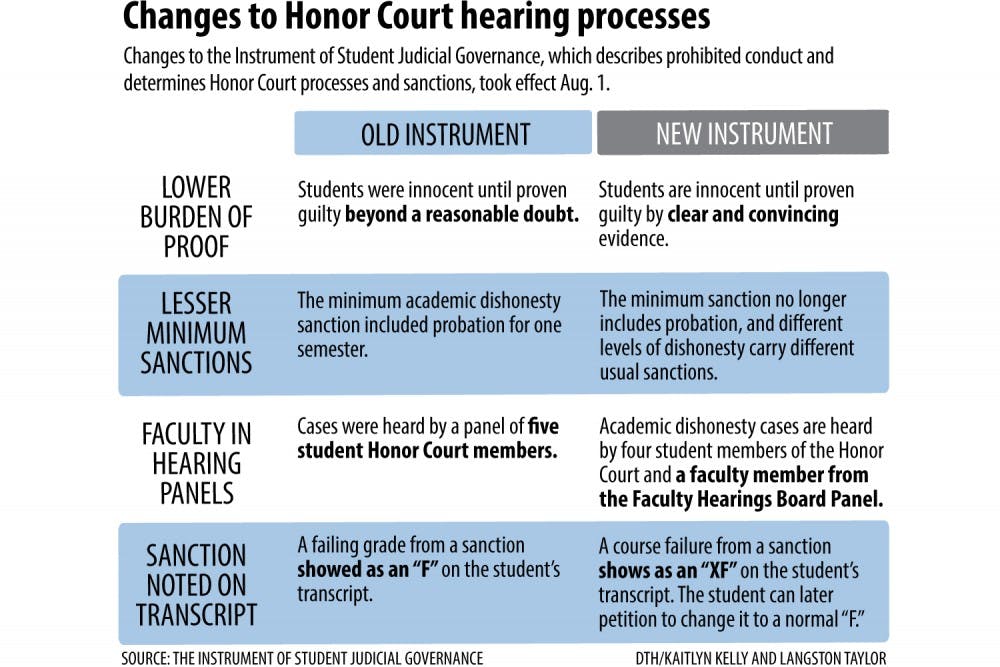“Different backgrounds have different points of view,” he said.
But freshman Tyler McCollum said he was concerned about faculty members being more sympathetic to their co-workers than to students.
The new Instrument also allows for students and instructors to settle the case without going through a hearing if the student has no prior academic dishonesty violations.
Lower burden of proof
Formerly, students charged with Honor Code violations were considered innocent until proven guilty “beyond a reasonable doubt.” The burden of proof has been lowered to “clear and convincing evidence.”
Student Attorney General Raquel Dominguez said the previous standard was the highest possible and is rare for colleges around the nation.
Foard said the high standard, though unusual, did not pose a problem for convicting students. Eighty-seven percent of students either pled guilty or were found so in Honor Court cases between Feb. 18 and Dec. 4 of last year, she said.
Sanctioning changes
The court reduced the minimum sanction for academic dishonesty cases and made the sanctioning system more flexible overall.
The Honor Court’s usual sanction previously included suspension for a semester; a minimum sanction included a semester of probation. The court now separates violations into three levels, the least severe of which will not warrant a recommendation for probation.
Dominguez said some professors were hesitant to charge students because they thought the penalties were too harsh. Each student who receives a failing grade due to a sanction will see the violation noted on the student’s transcript.
The changes to the Instrument took effect Aug. 1.
To get the day's news and headlines in your inbox each morning, sign up for our email newsletters.
“We really encourage any students to look into them and learn about them because they do affect students,” Foard said.
university@dailytarheel.com



